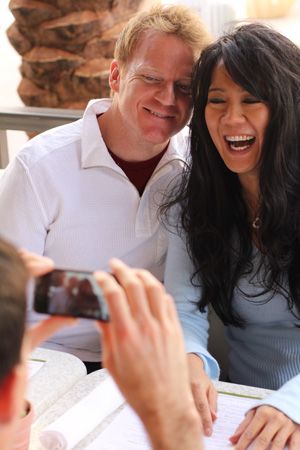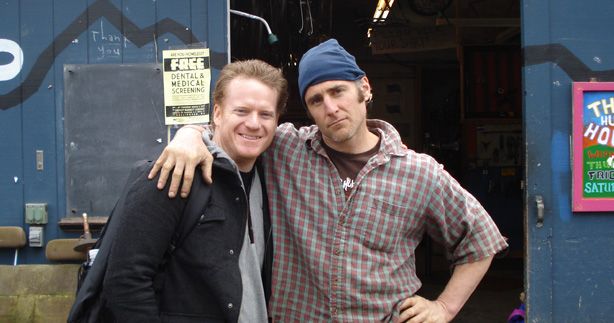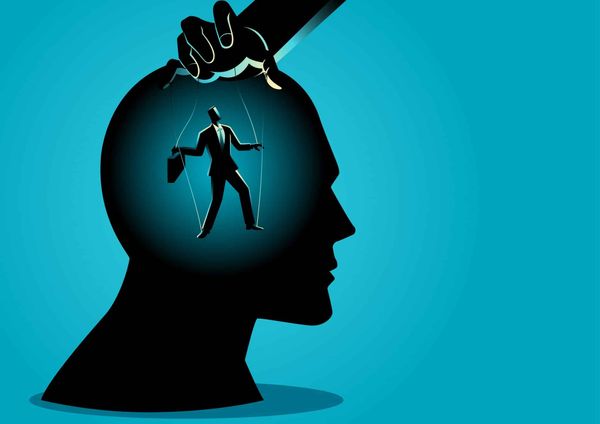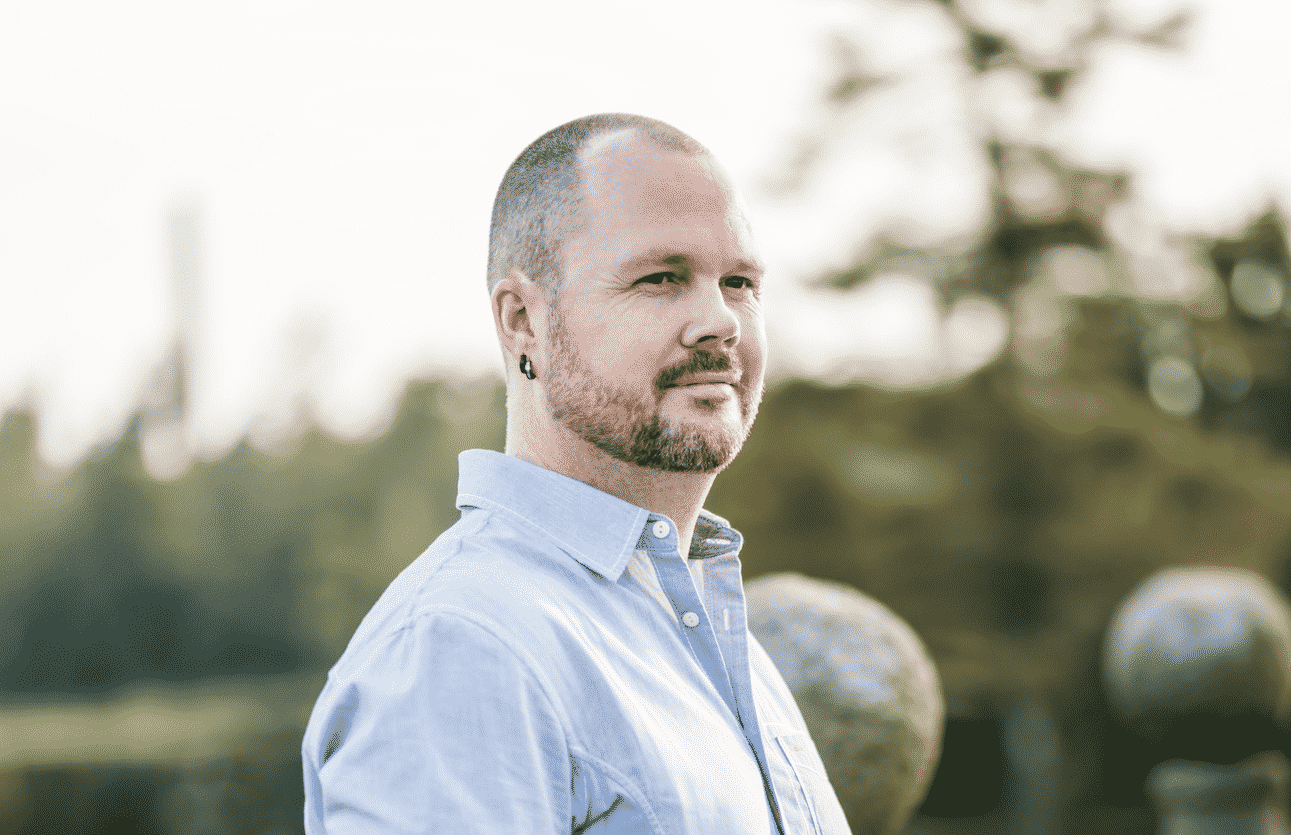Jordan Lejuwaan • • 10 min read
Reckless Bliss Followers: Greg Hartle – $10 and a Laptop

This is the first installment of what is to become a longstanding series of interviews with individuals who are following their bliss with reckless regard. These people have figured out what they love and shrugged off everything else in order to pursue it. Lack of funding, fear of the unknown nor accusations of insanity have been able to stand between these people and their dreams. The purpose of highlighting their stories is to push YOU to do the same. Our first modern-day hero is Greg Hartle who decided to give up all of his possessions and travel to all 50 states with only $10 (which he gave away on the first day) and his laptop. The mission of his ‘$10 and a Laptop’ project is two-fold:
1) To share the stories of 500 entrepreneurs who are shaping the new US economy
2) To “rely completely on [his] ideas, creativity, experience, hard work, the generosity of others, and what [he] learns from people along the way to reconstruct [his] life from zero.
Before you read the interview with Greg, get to know him better by checking out this short video from his first day of the project:
1) Can you give us a little background information on yourself?
I was born in Portland, Oregon, but moved to Phoenix, AZ when I was two. My mother and father divorced when I was five. I’ve only seen my father once since then. I grew up in poverty and worked hard to get out of it. I barely graduated high school and did not go to college. At 19 I accepted a position as a proof reader of documents for a small mom and pop company. The owners took me under their wing and for the next six years and taught me everything I ever needed to know about business. At the age of 22 I launched my first business. It was very successful and still in existence today. Between 22 – 25 years old I thought I had it all…money, success, a huge circle of friends, and 6-pack abs. I made some good choices in the stock market that propelled my success even further. I had a net worth of over one million dollars. At that time I also competed in Brazilian Jiu-Jitsu, kick-boxing, and mixed martial arts fighting. I felt like I was on top of the world, and planned to stay there for the rest of my life.
That all changed at age 25 when I was diagnosed with a rare kidney disease that nearly claimed my life. Where my days had been filled with working, workouts and parties, I now spent my time at hospitals and dialysis clinics. I moved back home with my parents so my mother could care for me. There were days when I didn’t move from bed, sometimes for physical reasons and other times from being so overwhelmed mentally and emotionally from my situation. My business suffered and I eventually had to sell out of my position of ownership. After eight months of treatments, I received a kidney transplant from my mother. She truly saved my life, and I love and respect her dearly for that. Soon after the transplant I was feeling great, but then the medical bills began to pour in. The cost to keep me alive was astronomical, and no insurance company wanted to even speak to me. Within a year after the transplant, I had not only drained my entire life savings, but I had also racked up a huge amount of debt.

I spent the next few years trying to put my life back together and get back to where I was pre-kidney disease. I had many small successes and many large failures, and learned a lot along the way. But somehow, the life I had before always seemed just out of reach, like I couldn’t quite get there. This was perhaps the most frustrating part of my life, knowing I had more knowledge, experienced and skills than before, yet somehow I couldn’t attain my goals. Then it occurred to me one day — I’m NOT going to achieve that life ever again, because I’m not the same person. Going through that experience literally rocked me to the core, and my values had changed, so chasing after that lifestyle was really a contradiction to who I now was.
I decided then, my life would be about service to others and sharing my knowledge and skills, and that money and success would follow naturally. Once I made that adjustment in my thinking and focus, life got a lot easier. Things seemed to fall into place for me like never before. I was meeting the right people and finding the right opportunities, with little to no effort. And before I knew it, I had built a life for myself that was even better and more fulfilling that the one I had led before my disease. Since the time of my disease through now I’ve started, bought, sold, and invested in several businesses and many real estate projects. My passion is business. My purpose, however, is service to others. Since August 16, 2008 I’ve used my passion to find ways to serve others. Including my most recent experiment, $10 and a Laptop.
2) How did you come to creating the ‘$10 and a Laptop‘ project?
We’ve experienced a major economic shift in recent years. It’s my opinion these times will prove far more significant than the Great Depression. As we speak, I think the world is resetting itself economically, socially, and spiritually. While the 30’s may have been the Great Depression, I believe right now we are at the Great Reset, but this reset isn’t just happening in America. We’re in a global economy now. (See the rise of China and India, the complete country collapse of Greece and Ireland, the uprising in Tunisia, Egypt, etc, then look at the record number of unemployed and poverty stricken Americans.) During this Great Reset I’ve had several friends and associates come to me with great challenges they’re faced with including home foreclosure, job layoff, divorce, etc. The reality is I didn’t have any grand advice for them because I wasn’t experiencing those things and the world was/is changing so fast I wasn’t sure what they could realistically do to adapt. The most honest answer I could give them was, “I don’t know.” Not being one to leave something at “I don’t know,” I decided to follow that up with “Let’s find out together.” That’s when $10 and a Laptop was born.
3) What are your primary goals with the project?
The purpose of $10 and a Laptop is to share 500 stories of people in business, education, and the non-profit community who are shaping America in the new economy. The vision is to travel through all 50 states (began January 5, 2011) and interview people who are willing to share how they are adapting and what results they are seeing in these uncertain, rapidly changing times. It’s my hope that those who are part of the “TenLap” community will learn ideas, innovations, and strategies they can apply to their businesses, schools, and communities to navigate the new economy successfully.
At the very same time I’m sharing these 500 stories, I will also share my story. In an effort to truly understand what it takes to navigate the new economy, I’ve personally given up all my possessions including my vehicle and basically started my life over with just $10 and my laptop. That means there may be days I don’t eat or have a place to sleep. I will have to rely completely on my ideas, creativity, experience, hard work, and the help and generosity of others to reconstruct my life from zero and I’ll document the entire journey on my blog.

4) What changes do you believe people should make in order to embrace this new economy? What changes in the economy have necessitated those changes?
First we must redefine Prosperity in America. The sense of entitlement in America could be the single greatest challenge we have to overcome. Prosperity is not a right, it’s a privilege. And it’s one that is earned. While individual prosperity is the cornerstone of America we must consider at what expense. We can still be prosperous as individuals and a nation, but we must do so under a new form of consciousness. One that surpasses narcissism and grows into the capacity to take wider and deeper perspectives. The first step is taking responsibility for aligning our choices with higher possibilities. Not just for me or you, but for all of us and our earth.
The change in consciousness must happen on three levels:
Individual Mindset Change: We have to recognize we do not function in isolation. That we have an impact on the entire world and planet and are, in turn, impacted by it. Personal aggrandizement at the expense of everyone else and our environment is counterproductive and, more importantly, unsustainable. Excess consumption is neither good for you nor good for society. It’s been proven to be a failed strategy.
Institution Structural Change: The world has altered greatly in the last few decades, but our institutions–business, government, and education–have remained antiquated. The old command-and-control hierarchies are totally unsuited to the present era of instant multilevel communication. Our current structures and practices are grossly inadequate, mere Band-Aids incapable of coping with severed arteries. For years we’ve been manufacturing problems and spending good money after bad to pretend to solve them. It’s time to change the structure, not just plug holes. When it comes to our institutions we must begin to think and act in a radically different way. We must begin to implement these changes in our own “institutions” (our own businesses and households) first, no matter how small in size while holding our larger institutions accountable to do the same. We must bring together all parties, government, education, and business to communicate and collaborate in ways never before done to redesign and transform the current archaic institutional models.
Societal Value Change: As long as material accumulation remains the index of success, we will have excess. We will have things galore, but happiness will remain a stranger. And, over-production and over-consumption will continue as the measure of well-being despite the obviousness both cause excess illness. Better leaders will emerge only when we change what we honor and value. Our values in this country are easily defined. It’s simply where we spend our time and our money. Companies and governments count every purchase you make and make almost every decision based on your purchases. We must reconsider how we relate to the things in our lives and what we want from our businesses, governments, and educational institutions. We must start by recognizing that every dollar we spend is a vote for or against something. (You can read more of Greg’s thoughts on this on this topic here: http://bit.ly/fJFZQI and here: http://bit.ly/flsh8O)
5) What kind of reactions did you get from your friends and family? How did you deal with any skepticism you received?
I received every reaction imaginable. Things from, “Greg, you’re crazy!” to “Wow! How exciting!” Most people who know me know I’m an experimenter. My favorite thing to do is whatever I haven’t done yet. Those closest to me were not surprised. Nor did they feel the need to be skeptics because they’ve watched me “experiment” my entire life. For those who were/are skeptics I choose not to say anything.
I allow my life to be my words.
6) What’s the most important lesson you have learned since embarking on your journey?
Pack more underwear. Just kidding. The most honest answer I can give is, I’m not sure. I can tell you that it’s been my experience so far that Americans are incredibly resilient and resourceful. I think the most important lesson for me to always remember throughout this journey is that every interaction with anyone, anywhere is an opportunity for me to gain additional perspective.
7) How have you funded the project thus far and what are you long-term funding plans?
Every month I’m posting the financials to the website so you’ll be able to follow along with every dollar I make and spend. I started with offering my skill set for whatever price someone was willing to pay. I put this up on my website and it’s worked pretty well so far. http://bit.ly/eRvi34 I helped someone write a resume for $30. Another person purchased four Skype business strategy sessions with me. I helped a couple move some furniture for a few dollars and dinner. There have also been a few generous people who have made small donations through my “Feed Me, Fuel Me, Buy Me Drink” link on my website. Up to this point, I’m simply doing whatever it takes. My long-term plans are to launch 50 businesses. Through these businesses I will have income to fund the project and my life. I want to demonstrate for people the many ways to make money through being an entrepreneur. I’m also in talks with a few different companies regarding sponsorships. Sponsorships would be incredibly helpful to quickly and dramatically increase the production of the project.
I do not believe in the idea of, “Do what you love and the money will come.” It sounds nice and it does work for a small percentage of people, but the reality is that strategy will not work for most. If it did, there would be no such thing as a starving actor or a painter that can’t pay her rent, or a construction worker who has to take a second or third job to take care of his wife and kids. I do, however, believe if you follow your passion, surround yourself with great people, learn how to become a great marketer and salesperson, have something of value that a significant number of people are willing to exchange their money for, have a constant willingness to adapt and change to current conditions, and continue to focus and work hard daily, you will be successful.
8) What advice would you give to other people who want to do something difficult or seemingly impossible?
Get started! A year from now you will wish you had. Not starting because you’re afraid to fail is a surefire way to become resentful and filled with regret. Take the approach of Act.Analyze.Adjust. And remember, the two most important long-term factors are complete focus (no distractions) on what you want and daily consistent behavior to lead you toward it.
9) Any long-term plans for after your project is completed?
As I write this I’m trying to figure out where I’m going to sleep tonight. My immediate priorities are currently superseding any long-term future plans. Although I’m sure I’ll launch another experiment when this one is complete. In the end, I’m just a dude that likes experimenting.
10) What is your overarching view on life? Mantra, philosophy, etc?
My Philosophy: Love the unlovable, forgive the unforgivable, and give to the undeserving.
My Values: Love, Fun, Growth
My Mantra: Don’t tell, show. Don’t talk, take action. Not tomorrow, today.
Follow Greg’s journey over at www.TenDollarsandaLaptop.com and on Facebook & Twitter








